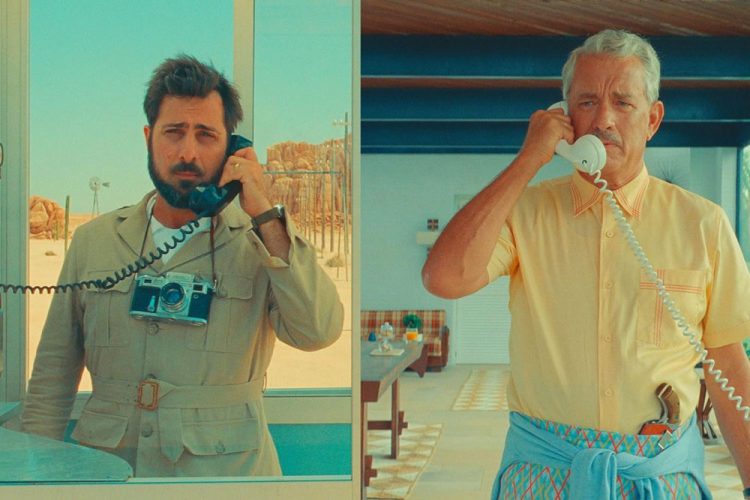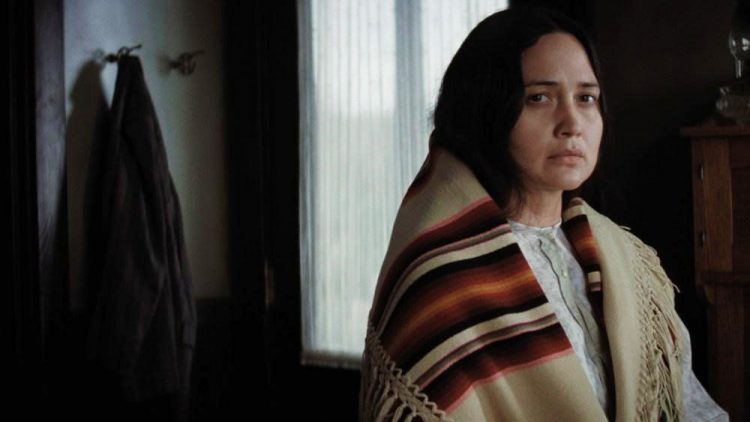 Each year, I use the weekend of the Academy Awards to write my last official post on the previous year in film, usually predicated on the relationship with the imminent Oscar winners. It often ends up being a half-hearted kind of Oscar prediction, except it’s less about predicting the Oscars and more about my thoughts on the nominees. It’s a useful barometer to use.
Each year, I use the weekend of the Academy Awards to write my last official post on the previous year in film, usually predicated on the relationship with the imminent Oscar winners. It often ends up being a half-hearted kind of Oscar prediction, except it’s less about predicting the Oscars and more about my thoughts on the nominees. It’s a useful barometer to use.
Even if the Oscar winners are more about momentum, and illusions of the zeitgeist and excellent campaigning than it is about taste and quality, they’re inextricably linked with value and exposure. You can see it in the way that many casual film enthusiasts will prioritise an Oscar nominated film. Many filmmakers and performers are going to get much-needed boosts to their career from this award season, and it’s hard to feel too annoyed about that even when the actual films leave me ambivalent.
Last year, my solution was to detail my own personal ballot of nominees to compare against the actual choices of Academy of Motion Picture Arts and Sciences. It was a helpful way to celebrate the things I liked, while obligatorily acknowledging the spectre of the Oscars that looms over the first few months of any year. This year, I feel less inclined to embark on such an endeavour especially when the ostensible result always seems to be a dichotomy between the right choices and the wrong choices, which is a foolish venture in thinking about art. Even as my tastes diverge from the tastes of the Academy with each passing year, I still find myself sympathetic to the plight of coming up with anything that offers any logical semblance of “best of the year”.
Still, it’s hard not to take a cursory glance at the 20 nominated acting performers, the 10 nominated screenplays, the 10 nominees for Best Picture and the 5 nominees for Best Director and realise that the Academy could only come up with 13 different films. Even accounting for the overlap in categories, the paucity of dynamism in the slate of nominees tells its own stories of groupthink and sameness that I suspect has made this recent award season a bit of a slog in ways that are a bit too enervating to think about. It’s a sensation I’ve felt voting in my own critics’ group where colleagues I’d speak to would have varied and idiosyncratic tastes, but our respective organisations ended up featuring some tediously familiar choices.
It’s also a sensation that has had me analysing my own tastes, and the rationale behind them, in a way that’s threatened to take a lot of the unmitigated joy out of engaging with cinema. So, allow me a caveat in this column, which is neither an Oscar nominee analysis nor an analysis of my favourites of 2023. Wes Anderson’s “Asteroid City” is the one film of 2023 that I know is my unmitigated favourite. The great thing about loving “Asteroid City” so much, though, is in realising that love – especially for movies – does not always, or even often, come in easily digestible bits. There are sections of movies I’ve loved in 2023 that exist within movies that I outright dislike. Meanwhile, there are movies that I love holistically where I find myself struggling to identify sections that I really want to prioritise.
1. “Asteroid City” (Wes Anderson)
Jason Schwartzman and Tom Hanks in “Asteroid City”
Wes Anderson had a productive 2023. Alongside his 11th feature-film directorial effort, he also wrote, directed and produced four short-film adaptations of Roald Dahl stories for Netflix, one of which earned him a nomination for Best Live Action short. When I saw “Asteroid City” at the Guadalajara Film Festival last June, I didn’t expect it to fade away for the remainder of the 2023 awards season. In fact, I was certain that the melancholic metatextual reflections and reflexes of it would cause it to emerge as one of Anderson’s most lauded entries. I was wrong on that count, even though I suspect “Asteroid City” might be my own personal favourite Wes Anderson film. The conceit delights me. It is a film that’s presented as a television special documentary about the production of a play that’s ostensibly about aliens but is actually about human alienation and sadness and identity. “Asteroid City” is about making things, and unmaking things, and every time I try to talk about it, I find myself unable to find the right language to articulate it. It’s kind of like trying to explain love, in a way. Earnestness and melancholy don’t sit naturally together and yet I keep thinking about specific emotions that emerge from specific images here in a way that too many of Anderson’s staunchest critics seem unwilling, or unable, to grasp. Anderson loves the people and things on screen here. You can feel it from the zany set-ups, the emotional acuity of children mourning their dead mother. My best way of thinking of “Asteroid City”, which feels vital in an artistic reality where we’re browbeaten into reading too much literalism into the things we love, is that is a film that encourages us to give ourselves over to the sensations of things without always having to argue for their rightness.
My runners-up below are not my numbers 2 to 10 choices but varying snatches of things I’ve loved over the 2023 movie year.
“Killers of the Flower Moon” (Martin Scorsese)
“Heroico” (David Zonana)
Lily Gladstone in “Killers of the Flower Moon”
This more-than-three-hour epic is the one Best Picture nominee at the Oscars that I wholeheartedly endorse, so it makes sense that it’s unlikely to win more than one major award. The most likely option is a Best Actress for Lily Gladstone who gives a thoughtful, and complex performance as an Osage Nation woman who begins to realise that her white husband may be a threat to her, her family and her entire Indigenous community. It’s harrowing, sobering stuff and it’s also a performance, and film, that holds most things close to its chest. It’s another reminder of Martin Scorsese’s interest in examining complex issues of identity and belief systems in film. There’s a similar despondency to the story of the 18-year-old Indigenous boy who finds a systemic institution of abuse when he enlists in a military college in Mexico. I’m still not sure that I want to return to the grim miserabilist mood of Zonanan’s film, but it’s one that’s felt a lot more cogent and engaging than its peers in 2023 and a work that feels like part of a larger argument that Scorsese makes about inevitable violence in his film. Scorsese’s 2016 “Silence” is still his best work this century when it comes to philosophical engagements with history, but I’m grateful for the ways that “Killers of the Flower Moon” reflexes on its own formal properties, leaving the audience to make sense of yet another historical event that reminds us of the horrors of white supremacy.
“Monster” (Hirokazu Kore-eda)
“Nimona” (Nick Bruno and Troy Quane)
Netflix’s “Nimona” is the best animated film of 2023
At this point, it’s hard to argue against Kore-eda as one of the best directors of children and “Monster”, which tricks you into thinking it’s another movie before it
reaches its moving climax, is a good reminder of that. I’m not sure if it’s an advertising campaign that has capitalised on the “mystery” of it is doing the film justice. There is a mystery at its centre, but “Monster” finds Kore-eda in a familiar vein of philosophy that reminds me of his 2018 “Shoplifters”, which is both a treatise on the reality of poverty, and an account of the ways that adults harm children – even with good intentions. It’s that schism between good intentions and bad results that is so integral to the things that work in “Nimona”. I did not expect this animated science fantasy adventure to charm me as much as it did, but it was one of the few Oscar nominations that made me incandescently overjoyed. The Netflix film’s nomination for Best Animated Feature is a welcome result for this daring anti-authoritarian, anti-hegemonic queer film that is keyed into an awareness of how adults are like children, and children play-act as adults and the good – and bad – that can come from both. Beneath its ostensible frenetic humour is an impressive resistance to oppression that feels all too relevant.
“Inshallah A Boy” (Amjad Al Rasheed)
“All of Us Strangers” (Andrew Haigh)
I’m saddened, but unsurprised, that the Jordanian entry for Best International Film never picked up traction, but I’m more than grateful that the sharp social drama about a widowed woman trying to make sense of her husband, her family and her faith is so considerate about its characters. Rather than offering easy answers about gender and Islam, Rasheed’s film – anchored by a note-perfect performance from Mouna Hawa – manages to offer a robust critique of religious impropriety while still maintaining a value for the widow’s faith in a way that too many religious critiques seem unable to parse. The final beats of the film are a darkly comedic reminder that I’ve been thinking about for months. And it’s a relief that’s a sharp counter to the all-consuming despondency that sits with you at the end of Andrew Haigh’s “All of Us Strangers”. Haigh’s ability to make a cogent film from a novel that I do not enjoy is its own impressive act of adaptation, and even as I still don’t quite love everything about the film, I have not stopped thinking of the four central performances in this sombre tale of love, and parents, and loss.
“A Thousand And One” (A V Rockwell)
“Renaissance: A Film By Beyoncé (Beyoncé Knowles-Carter)
“Going To Mars: The Nikki Giovanni Project” (Joe Brewster and Michèle Stephenson)
Teyana Taylor gave the best performance of 2023 in “A Thousand And One”
While the film world was engaging in feminist discourse to make sense of Margot Robbie missing out on an Oscar nomination for directing “Barbie”, French director Justine Triet received her own surprise nomination, and Celine Song’s “Past Lives” ended up as a surprise nominee for Best Picture and Best Original Screenplay. Meanwhile, I’ve been thinking of the directorial debut of A V Rockwell, who is a filmmaker I am anxious and excited to see grow. I saw “A Thousand And One” for the first time at the 2023 Sundance Film Festival in January, and was struck at the emotional weight of this New York drama. In a better world, Teyana Taylor would be winning every award for her performance as a poor mother who is released from jail and kidnaps her son out of foster care to build a life together.
No film has been as emotionally profound on the issue of black motherhood and gentrification as this, and it’s a sign of great things to come from Rockwell. It makes for a sharp contrast with the opulence of Beyoncé’s concert-film of her record-breaking Renaissance Tour, but I find the themes of black motherhood that spill over from both intriguing to consider, if admittedly foolish. I’d be eager to see Beyoncé turn her attention to directing if only because her eye for flourishes, her ear for sound cues and the general procurement of joy make “Renaissance” one of the most emotionally engaging films of the last year. It is less documentary-as-explanation and more documentary-as sensations and it’s a similar way I think of the documentary on American poet Nikki Giovanni which resists trying to offer a birth-to-old-age account of Giovanni and instead offers a brief dip into who she is as a person and as an artist. In a year where so many films, fictionalised and documentary alike, have seemed too consumed into offering banal accounts of their protagonist’s life, this approach to a real human feels so much more engaging and thoughtful.








